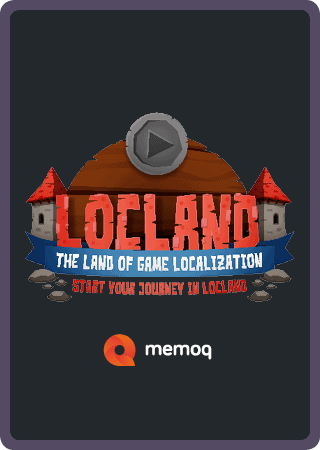Make Your Game Global
The larger the audience you want to reach, the more you need to localize your games. memoQ provides a comprehensive solution tailored to gaming companies.Reduce Your Costs
The functionality in memoQ and its efficient cost of ownership helps you keep the cost of game localization under control, even if you are a beginner. Using memoQ for localization helps you engage audiences around the world by maintaining linguistic coherence and cultural sensitivity in the content of your games.Increase Translation Quality
memoQ offers two kinds of quality assurance. The QA module checks for machine-detectable errors during and/or after translation and can be automated. The Linguistic QA module categorizes errors and provides human feedback and valuable statistics for translators.memoQ Gaming Unit
The memoQ Gaming Unit was established to dedicate a specific team for the gaming industry. Our deep understanding of the sector’s needs, the flexibility of the memoQ tool, and with more than 100 gaming customers, it was time to set up a professional team to provide a more personalized approach to seamlessly integrating memoQ into existing game production workflows.
The memoQ Gaming Unit consists of Emilie Renaud, Head of Gaming Unit; Florian Jouanel, Business Development Manager; Maria Daskalova, Customer Success Manager; János Szabó and Santiago de Miguel, Gaming Unit Solution Engineers

What Our Customers Say
Features Tailored to Game Localization Needs
Never translate the same text twice! Translation memory enables you to reuse previously translated segments. In addition, the LiveDocs function in memoQ stores the entire corpora and also offers document alignment. Use these references any time when you translate.
Poor translations can have a bad effect on your game’s acceptance. Term bases in memoQ are databases for storing important words and expressions and their equivalents. Term bases help translators stick to the terminology used in your game, which is especially essential when a team of translators is working on the same content simultaneously.

Many projects require the translation of thousands of words in just a couple of days. Real-time collaboration offers the possibility of sharing translation memories and term bases. Moreover, translators can communicate in real time with the instant messaging function (chat window) in memoQ.
Project templates in memoQ let you automate many steps within a project, from setup to work assignment, quality assurance, and delivery. Many memoQ users report that the project template feature has significantly reduced the amount of time it takes to set up a project.
The Best Package for Game Localization

memoQ server
memoQ server is an enterprise-level translation management system (TMS) with advanced productivity tools. memoQ enables and manages collaborative work in a comprehensive translation environment, which speeds up game localization by allowing multiple translators and reviewers to work on projects simultaneously.
Learn more about memoQ server
LiveDocs
LiveDocs is a corpus-based alternative to translation memories that keeps your translation content structured and organized. It saves entire documents (whereas translation memories make a database of translated segments). LiveDocs can even manage monolingual documents that you can use for reference. During translation, memoQ searches and pulls matches from LiveDocs just as it would from a translation memory.
Learn more about LiveDocs
Multilingual Excel File Filter
memoQ has a dedicated filter that allows you to easily work with multilingual Excel or CSV sheets. You can specify which languages are in which columns.
Learn more about Multilingual Excel File Filter
LocLand: The Land of Game Localization
This eBook is your ultimate guide to game localization. Explore why localization is crucial for gaming companies and what are the most important aspects when implementing a workflow for game localization.




